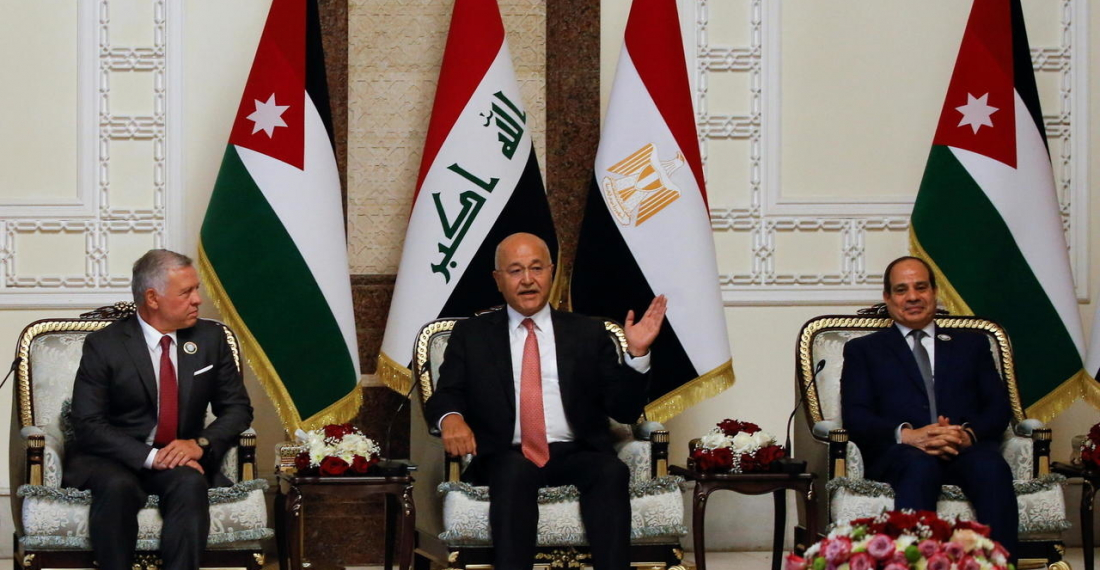For the first time in thirty years, an Egyptian president visited Baghdad on Sunday. President Abdul Fattah al Sisi arrived in Iraq to participate in a trilateral summit with the Iraqi prime minister, Mustafa al-Kadhimi, and Jordan’s King Abdullah II.
Egypt and Iraq, once allies during the Iran-Iraq war of the 1980's saw relations deteriorate to breaking point after the Iraqi invasion of Kuwait in 1991.
The Egypt-Jordan-Iraq summit comes within the framework of the tripartite co-operation mechanism between the three countries, which held its first round in Cairo in March 2019.
On Sunday, in Baghdad, the three leaders discussed several areas of regional interest, including the recent developments on the Palestinian issue, combating terrorism and economic cooperation, an Egyptian presidency statement said.
“The leaders stressed the need to intensify consultation and coordination between the three countries on the most important regional issues,” it added.
Whilst not mentioned in official statements the trilateral relationship established between Egypt, Iraq and Jordan is seen partly as an attempt to neutralise Iran’s influence across the region.
The Iraqi prime minister, Mustafa Al-Kadhimi, said the meeting seeks to develop up regional alliances and bolster Iraq’s standing in the Middle East as a mediator. It recently hosted Iranian and Saudi officials in Baghdad in April, their first high-level meeting since Riyadh cut diplomatic ties with Tehran in 2016.
“This visit is an important message to our people that we are mutually supportive and unified to serve our people and the people of the region,” al-Kadhimi said, according to a statement from his office.






